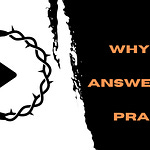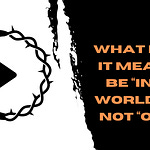When I instruct children on prayer, there is a familiar routine I follow. I’ll usually pick one of the older kids in the class and ask, “Have you ever asked me to give you $1 million?” When they invariably reply, “No,” I press again by asking, “Why not?”
“Because you don’t have a million dollars.” That is true.
This springboards the conversation into the limitations we place on God. My suggestion is not for everyone to ask God for $1 million, but it is to encourage us to ask for things we know God can provide, including the big, miraculous things.
Simply put: if we know God is capable of healing our terminal illness, relieving us of our persistent addictions, or bringing our wayward family member home, are we asking Him for these things?
In Acts 3, the day of Pentecost is still fresh on Jerusalem’s collective mind. Thousands of people came to accept Christ after witnessing the supernatural abilities of the disciples to speak in multinational languages. The death of Jesus is a couple of months old by now, but the church is just beginning to grow. Disciples like Peter and John are not yet being imprisoned or beaten because the effects of their ministry are still unnoticeable to the larger Jewish leadership. But that is about to change.
Peter and John walk into the temple for worship at the most popular entrance, where the Gentiles (non-Jewish believers) and women are allowed to worship. Because of its popularity, a man—crippled from birth—regularly begs for charity. We read later that he is well-recognized by the routine worshipers.
The crippled man passively asks Peter and John for money in verse 3. The disciples stop in their tracks, giving him their full attention. In verse 4, Peter demands that the beggar look back at them. Mind you, this occurs immediately after the beggar has just asked for their assistance. Clearly, this man is simply asking anyone for help, and this is a bustling place. The man focuses on them, expecting to receive charity.
Picking up in verse 6, “Then Peter said, “Silver or gold I do not have, but what I do have I give you. In the name of Jesus Christ of Nazareth, walk.” (Acts 3:6, NIV) Peter takes the beggar by the hand and pulls him to his feet; his feet and ankles become strong. This results in the beggar’s joy, the crowd’s amazement, the conversion of many, and the attention of the suspicious leadership.
There are so many things worth touching on.
For instance, the man’s feet and ankles become strong after he stands. Imagine being this beggar and having a stranger attempt to pull you to the feet you’ve never used… what would your response be?
It’s also fascinating how instantaneously our lives can change with the correct persistence. This man spent years coming to this same gate—we can infer this from how recognizable he is to the baffled crowd. The years of this man’s misery laid the convincing groundwork to turn many hearts to Christ. What would that beggar have missed if he had chosen another entrance or place for that day? Would the crowd still have believed the miracle if they did not know the length of his ailment?
There are messages hidden within each of those tangents; however, this message will stress the importance of asking for the right thing. The best thing.
The beggar was passively asking for money. He was resigned to his plight and sought only to soothe the symptoms of his disability. Yet, the power of an anointed Peter offered something far greater: true relief.
Faith is formed in our requests. The bigger the ask, the bigger our faith. If we ask God for something big, it can only be because we believe—or we want to believe—that He can provide it. By begging for his inexplicable help, we reveal our inability to change the situation while demonstrating our faith in His ability to make a difference. That humility is the fertile ground for faith to plant deeply. That’s the type of faith Jesus hopes to draw from us.
The New Testament is full of disciples and apostles performing miracles. So why aren’t there more bona fide miracles in our comfortable Western culture? Perhaps we aren’t seriously asking. Perhaps we aren’t seriously believing.
The risk is high, right? Who wants to look foolish by publicly asking for something that may not happen? No one. So we pray silently, afraid of stepping onto the waves of faith. If we are healed by the measure of our faith (Matthew 9:22) but our faith in His continual power is small, so will the healing be. By protecting our public image, we are limiting our faith. We may feel we must defend God’s integrity—trust me, He can handle Himself.
We may feel it isn’t our place to ask too much of God. Well, Jesus says in the book of John, “And I will do whatever you ask in my name, so that the Father may be glorified in the Son. You may ask me for anything in my name, and I will do it.”(John 14:13-14)
We may feel like miracles are a part of ancient history or were only accessible through the founding apostles. If so, we restrict God’s promises to a specific time and place. If that’s the case and we haven’t had any new promises for us in the last 2,000 years, what can we place our faith in? How can the salvation of the cross be eternally available, but not the other promises of the ever-present God? We can see how our logic quickly breaks apart if we restrict miracles to contextual time periods.
Our solution is not to ask God for bland desires or worldly fulfillment. Our solution is not to visit a particular evangelist or buy some freshly anointed prayer cloth from a TV personality.
Our only solution is to accept, by faith, that God can and wants to heal us miraculously and to ask for it boldly. When a brother in my weekly Men’s group irreparably injured his knee, we prayed in faith for healing. Not some soft and safe “give the doctors wisdom” or “remove the pain from the knee.” No, we asked for healing, We ask so that his his testimony would glorify the still-moving God. God delivered.
God, help our unbelief. Please help us to ask in faith for your divine healing. Help us to have faith that you can deliver the unimaginable. Remind us to ask for the big things so that there is no doubt in your power and capability when You come through.
Like the father of a dying son exclaimed to Jesus, “Help my unbelief?” in Mark 9:24, our faith can be weak or small. Fortunately, the smallest mustard seed’s worth of faith is still enough to those who believe. (Matthew 17:20) Go ahead. Ask big. Get ready to see something amazing.




















31 - If faith healing is real, why don’t we see more of it?